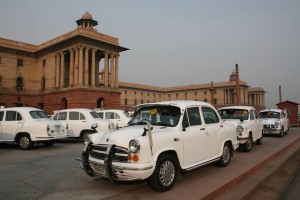The Union Minister of State , PMO, Personnel, Public Grievances, Pensions, Dr. Jitendra Singh disclosed that as a follow-up to the decision taken by the government in the month of May this year, an expert committee consisting of leading academicians, technocrats and senior bureaucrats of national repute has been constituted to revisit the entire pattern, syllabus and eligibility criteria for IAS / Civil Services examination.
 Based on the report of the Committee, further changes in the civil services exam pattern will be contemplated with the primary objective of providing a level playing field to aspirants from diverse streams of curriculum like mathematics, engineering, medicine or humanities and at the same time, also ensuring that the youngsters who took up IAS as a career possess a genuine aptitude for administrative job.
Based on the report of the Committee, further changes in the civil services exam pattern will be contemplated with the primary objective of providing a level playing field to aspirants from diverse streams of curriculum like mathematics, engineering, medicine or humanities and at the same time, also ensuring that the youngsters who took up IAS as a career possess a genuine aptitude for administrative job.
Till such time as the recommendations of the expert committee are received and the government subsequently takes a decision on the same, Dr. Jitendra Singh clarified that the General Studies Paper-II (CSAT) in the Civil Services Preliminary Examination will remain a qualifying paper with minimum qualifying marks fixed at 33%.
Meanwhile, the DoPT’s decision taken last year to exclude the English portion consisting of 22 marks in the General Studies Paper-II of the Civil Services Preliminary Examination from tabulation also continues to remain in force.
The decision to revise the IAS pattern was a path-breaking one and aimed to achieve the basic objective of ensuring that the best and the most deserving with a genuine aptitude, should get the opportunity to become a part of the administrative set up of rapidly developing 21st century India.
Dr. Jitendra Singh recalled that soon after the present government took over on May 26, 2014, it was confronted with the demands from across the country for revisiting the pattern and syllabus of Civil Services examination. After prolonged deliberations at different levels, he had himself personally studied the question papers of the last 3 years of IAS / Civil Services examination and come to a conclusion that the issue deserved to be re-looked in the background of inputs received from different quarters.
It was also being alleged that the present syllabus and pattern tended to benefit students from mathematics and engineering backgrounds. At the same time, there was also risk of the aptitude becoming a casualty in the pursuit of a secure IAS career.

